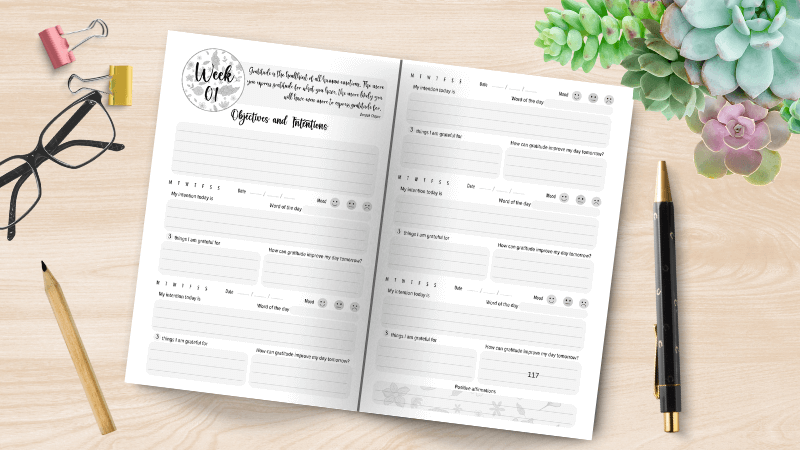Reading time: 22 minutes
Introduction
Imagine having the power to boost your brain’s performance and enhance your mental well-being with just a few simple brain exercises. Sounds intriguing, right? Mental fitness is not just a trendy buzzword; it’s a crucial aspect of our overall health that often gets overlooked. While we frequently prioritize physical health, it’s essential to remember that our minds need just as much attention and care.
What is Mental Fitness?
Mental fitness refers to maintaining cognitive health and emotional health in top shape through regular brain exercises. Just like physical fitness, it requires consistent effort and the right brain exercises to stay in peak condition. But why is it so important? Well, mental fitness can lead to improved concentration, better stress management, enhanced memory, and even greater happiness. Essentially, it’s the secret sauce to a more fulfilling life.
Imagine having the power to boost your brain’s performance and enhance your mental well-being with just a few simple brain exercises. For example, word search puzzles are great for vocabulary building
Why is Mental Fitness Important?
We often hear about the benefits of physical exercise, but mental fitness is equally important. Just as we exercise to keep our bodies healthy, our minds need regular workouts to stay sharp and efficient. Good mental health can improve your quality of life, boost productivity, and enhance your relationships. It’s the foundation upon which we build our daily lives.
The importance of mental fitness cannot be overstated. A mentally fit person is better equipped to manage stress, make decisions, and maintain a positive outlook on life. According to Healthline, mental fitness can lead to lower levels of anxiety and depression, improved mood, and even better physical health. When your mind is fit, you’re more likely to experience higher levels of energy and creativity, making it easier to pursue your goals and enjoy life to the fullest.
Benefits of Maintaining Good Mental Health
Maintaining good mental health comes with a plethora of benefits that impact all aspects of life. Here are some of the key advantages:
- Improved Concentration and Memory: Regular brain exercises can enhance cognitive functions, making it easier to focus and remember important details.
- Better Stress Management: Mental fitness equips you with the tools to handle stress more effectively, reducing its negative impact on your life.
- Enhanced Emotional Stability: A fit mind helps you regulate your emotions, making it easier to stay calm and composed in challenging situations.
- Increased Happiness and Fulfillment: Mental fitness is linked to higher levels of overall well-being and life satisfaction. When your mind is healthy, you’re more likely to feel happy and content.
- Stronger Relationships: Good mental health fosters better communication and understanding, leading to more meaningful and satisfying relationships.
Incorporating brain exercises and other mental fitness practices into your daily routine can transform your life, making you more resilient, focused, and emotionally balanced. As we move forward, we’ll explore the key components of mental fitness and how you can integrate them into your life.
Key Components of Mental Fitness

Emotional Health
Understanding Emotional Health
Emotional health is a cornerstone of mental fitness. It involves understanding your emotions, expressing them appropriately, and managing them effectively. When you have strong emotional health, you’re better equipped to handle life’s ups and downs. According to Smiling Mind, developing resilience is crucial. This means bouncing back from setbacks, learning from experiences, and maintaining a positive outlook despite challenges.
Enhancing Emotional Health
One effective way to boost emotional health is through mindfulness practices. Mindfulness helps you stay present and aware, reducing the tendency to dwell on past mistakes or future worries. It encourages emotional regulation, allowing you to respond to situations calmly rather than react impulsively. Techniques such as meditation or deep-breathing exercises can significantly enhance your emotional well-being.
Building Emotional Intelligence
Another important aspect is building emotional intelligence. This involves recognizing your emotions and those of others, which can improve communication and relationships. Emotional intelligence enables you to empathize, manage conflicts, and express yourself clearly, all of which contribute to a healthier, more fulfilling life.
Cognitive Health with Brain Exercises
Keeping Your Brain Sharp
Cognitive health is all about keeping your brain sharp and maintaining mental clarity. It’s not just about avoiding cognitive decline but actively enhancing brain functions like memory, problem-solving, and decision-making. Brain exercises play a crucial role in this aspect of mental fitness. Engaging in brain exercises such as puzzles, reading, or learning new skills can stimulate your brain and improve cognitive functions.
Flexible Thinking and Mental Agility
Flexible thinking is another key component of cognitive health. It allows you to adapt to new situations, consider multiple perspectives, and find innovative solutions to problems. Smiling Mind emphasizes the importance of mental agility, which can be cultivated through activities that challenge your brain and push you out of your comfort zone.
Regular Brain Training
Moreover, staying cognitively healthy involves regular brain training. This could include anything from crossword puzzles and Sudoku to more complex games that require strategic thinking. These activities not only boost memory and concentration but also enhance overall mental sharpness.
Engaging in puzzles and brain teasers can stimulate your brain and improve its overall performance. Learn more about the fascinating journey of the history of the Sudoku puzzle game or how word search puzzles enhance vocabulary and cognitive skills for all ages.
Social Health
Importance of Social Connections
Social health is about building and maintaining healthy relationships, which are vital for overall well-being. Humans are inherently social creatures, and having a strong support network can provide emotional support, reduce stress, and increase feelings of belonging. Social interactions can stimulate your brain, improve your mood, and even enhance your immune system.
Engaging in Social Activities
Engaging in social activities such as joining clubs, volunteering, or simply spending time with loved ones can strengthen social bonds and improve mental fitness. Meaningful relationships provide a sense of purpose and can be a source of joy and comfort during tough times. A fun way to combine social interaction and cognitive stimulation is by solving puzzles together. Activities like crosswords, word scrambles, and other brain games can foster teamwork and communication while keeping your mind sharp.
Communication Skills
Communication skills are also a critical part of social health. Being able to express yourself clearly, listen actively, and resolve conflicts amicably can improve your relationships and overall quality of life. It’s important to nurture these skills through regular practice and by seeking opportunities for social engagement.

Spiritual Health
Finding Purpose and Meaning
Spiritual health involves finding purpose and meaning in life, which can significantly impact your mental fitness. It’s not necessarily about religion but rather about connecting with something greater than yourself, whether that’s a sense of community, nature, or personal beliefs and values. Spirituality can provide comfort, guidance, and a deeper understanding of life’s challenges and joys.
Spiritual Practices
Incorporating spiritual practices into your routine can enhance your mental fitness. This might include activities like meditation, yoga, or spending time in nature. These practices can help you feel more grounded and connected, reducing feelings of anxiety and stress.
Developing a Sense of Connection
According to Smiling Mind, spiritual health also involves developing a sense of connection and purpose. This can be achieved through volunteer work, pursuing passions, or simply reflecting on your values and goals. By aligning your actions with your beliefs, you can create a more fulfilling and meaningful life.
Strategies to Improve Mental Fitness

Mindfulness, Meditation, and Brain Exercises
Benefits of Mindfulness and Meditation
Mindfulness and meditation are powerful tools for enhancing mental fitness. By practicing mindfulness, you train your brain to stay present and focused, which can reduce stress and improve emotional regulation. Meditation, a key component of mindfulness, involves taking time each day to sit quietly and focus on your breath, thoughts, or a specific mantra.
Daily Mindfulness Practices
Incorporating mindfulness techniques into your daily routine can be as simple as spending a few minutes each morning in silent meditation, engaging in mindful walking, or practicing deep breathing exercises during stressful moments. According to Smiling Mind, regular meditation can lead to improved concentration, better emotional health, and a greater sense of overall well-being.
Physical Exercise and Brain Exercises
Impact of Physical Exercise on Mental Health
Physical exercise is not just about maintaining a fit body; it also plays a significant role in mental fitness. Exercise releases endorphins, the body’s natural mood lifters, which can help reduce stress and anxiety. It also improves sleep, boosts self-esteem, and enhances cognitive functions.
Types of Beneficial Exercises
Incorporating regular physical activity into your routine can have profound effects on your mental health. Activities like jogging, yoga, and even dancing can help you stay physically and mentally fit. According to various studies, even moderate physical exercise can lead to better mental health outcomes, such as reduced symptoms of depression and anxiety.
Nutrition for Brain Exercises
Impact on Brain Health
Nutrition plays a critical role in brain health. The foods you eat can have a significant impact on your mood, energy levels, and overall cognitive functions. A diet rich in antioxidants, healthy fats, vitamins, and minerals provides the brain with the necessary nutrients to function optimally.
Brain-Boosting Foods
Some brain-boosting foods include fatty fish rich in omega-3 fatty acids, berries packed with antioxidants, nuts and seeds, and leafy green vegetables. Incorporating these foods into your diet can help enhance brain performance and improve mental fitness. Protein intake is also crucial for brain health, as proteins are the building blocks of neurotransmitters that regulate mood and cognitive functions. Including sources of animal protein, such as lean meats, eggs, and dairy, can provide essential amino acids that the brain needs to function effectively.
Sleep
Importance of Quality Sleep
Sleep is a vital component of mental fitness. It’s during sleep that our brains process information, consolidate memories, and repair themselves. Lack of sleep can lead to a host of mental health issues, including impaired cognitive functions, mood swings, and increased stress levels.
Tips for Better Sleep
Ensuring you get enough quality sleep each night is crucial for maintaining mental fitness. Establishing a regular sleep routine, creating a restful environment, and avoiding screens before bedtime can significantly improve sleep quality. Aim for 7-9 hours of sleep per night to ensure your brain has adequate time to rest and rejuvenate.
Stress Management
Effective Stress Management Techniques
Effective stress management is essential for mental fitness. Chronic stress can have detrimental effects on both the mind and body, leading to issues such as anxiety, depression, and cognitive decline. Learning to manage stress through various techniques can help maintain mental health.
Practical Stress Management Strategies
One effective method is through Cognitive Behavioral Therapy (CBT), which involves identifying and challenging negative thought patterns and behaviors. Starling Minds suggests that CBT can help you develop healthier thinking patterns and coping strategies. Other stress management techniques include deep breathing exercises, progressive muscle relaxation, and engaging in hobbies that bring joy and relaxation.
Mental Fitness Exercises and Activities
Brain Training Exercises
Engaging in Brain Training Exercises
Brain training exercises, which are a type of brain exercise, are designed to keep your mind sharp and agile. These activities challenge your cognitive functions, enhancing memory, problem-solving skills, and mental flexibility. Participating in puzzles, such as crosswords, Sudoku, and brain teasers, can stimulate your brain and improve its overall performance.
Benefits of Brain Training
Another effective brain training method is playing strategy games like chess or engaging in apps specifically designed to boost cognitive functions. These activities require concentration, planning, and critical thinking, which are essential for maintaining mental sharpness. Regular brain training not only enhances cognitive abilities but also provides a fun and engaging way to keep your mind fit.

Journaling and Brain Exercises
Importance of Journaling for Mental Fitness
Journaling is a powerful tool for mental fitness. It allows you to express your thoughts and emotions, providing a healthy outlet for stress and anxiety. By writing regularly, you can gain clarity, reflect on your experiences, and track your personal growth. Journaling can also help you set and achieve goals, as it encourages self-discipline and focus.
For more detailed techniques, check out our post on journaling for mental health: benefits and techniques explained.
Types of Journals
Different types of journals can serve various purposes. A gratitude journal, for instance, helps you focus on positive aspects of your life, fostering a sense of appreciation and well-being. On the other hand, a daily journal can help you organize your thoughts, plan your day, and reflect on your accomplishments and challenges. No matter the type, journaling is an effective exercise for improving mental health and emotional regulation.
Check out our post on how to start a gratitude journal and stick with it: a complete guide.

Creative Outlets for Brain Exercises
Engaging in Creative Activities
Taking part in creative activities is another excellent way to boost mental fitness through brain exercises. Creative outlets, such as painting, drawing, coloring, writing, or playing a musical instrument, provide a form of self-expression that can reduce stress and enhance mood. These activities stimulate different parts of the brain, promoting mental flexibility and problem-solving skills.
Benefits of Creativity
Creativity also fosters mindfulness, as it requires you to focus entirely on the task at hand. This immersive experience can be incredibly relaxing and therapeutic, allowing you to disconnect from daily stressors. Whether you consider yourself artistic or not, finding a creative hobby can significantly contribute to your mental well-being.
Social Activities
Importance of Social Interaction
Social activities are vital for mental fitness. They provide opportunities for connection, support, and engagement, which are essential for emotional health. Participating in group activities, such as sports, clubs, or social gatherings, can enhance your sense of belonging and improve your mood. Stress relief with activity books is another great way to combine social interaction and mental stimulation.
Combining Social Interaction with Cognitive Stimulation
One enjoyable way to combine social interaction with cognitive stimulation is by solving puzzles together. Activities like crosswords, word scrambles, and other brain games can foster teamwork and communication while keeping your mind sharp. These shared experiences not only boost mental fitness but also strengthen relationships and create lasting memories.
Intentional Self-Reflection
Practicing Intentional Self-Reflection
Intentional self-reflection is a practice that involves taking time to think deeply about your experiences, thoughts, and feelings. This exercise can help you gain insights into your behavior, understand your emotions, and make more informed decisions. Self-reflection can be done through meditation, journaling, or simply setting aside quiet time to contemplate.
Benefits of Self-Reflection
By regularly reflecting on your actions and reactions, you can identify patterns, recognize areas for improvement, and develop greater self-awareness. This practice fosters emotional regulation and resilience, helping you navigate life’s challenges with a clearer mind and a more balanced perspective. Intentional self-reflection is a cornerstone of mental fitness, promoting ongoing personal growth and emotional stability.

Overcoming Barriers to Mental Fitness
Common Challenges in Practicing Brain Exercises
Identifying Common Challenges
Achieving and maintaining mental fitness can be challenging, as various obstacles may arise. One common barrier is time constraints. In our fast-paced lives, finding time to engage in mental fitness activities can seem impossible. Balancing work, family, and personal commitments often leaves little room for self-care.
Lack of Motivation and Societal Stigma
Another significant challenge is lack of motivation. Mental fitness requires consistent effort and discipline, and it can be difficult to stay motivated, especially during stressful times. Additionally, societal stigma surrounding mental health can discourage people from seeking help or engaging in activities that promote mental well-being.
Stress and Anxiety
Stress and anxiety are also major barriers. When overwhelmed with stress, it becomes harder to focus on mental fitness practices. Anxiety can create a vicious cycle, where the lack of mental fitness exacerbates stress, further hindering one’s ability to improve their mental health.
Solutions for Incorporating Brain Exercises
Practical Time Management Strategies
Despite these challenges, there are effective strategies to overcome barriers to mental fitness. One practical approach is time management. Allocating specific time slots in your daily schedule for mental fitness activities can make it easier to stick to a routine. Even setting aside just 10-15 minutes a day for activities like brain exercises, journaling, or meditation can make a significant difference.
Setting Achievable Goals
Finding motivation can be facilitated by setting clear, achievable goals. Start with small, manageable tasks and gradually increase their complexity. Tracking your progress and celebrating small victories can also boost motivation. It’s helpful to remind yourself of the benefits of mental fitness and how it positively impacts various aspects of your life.
Managing Stress and Anxiety
To combat stress and anxiety, incorporating stress management techniques into your daily routine is crucial. Practices such as deep breathing, progressive muscle relaxation, and mindfulness can help reduce stress levels. Cognitive Behavioral Therapy (CBT) techniques, can also be beneficial. However, one surprising yet highly effective tool is activity books. These seemingly simple books are packed with activities that offer immense benefits for stress relief and mental wellness.
Explore how activity books can serve as a powerful tool for stress relief here.
Seeking Professional Help
Importance of Professional Support
Sometimes, despite our best efforts, we might need additional support to achieve mental fitness. Seeking professional help is a crucial step in overcoming more significant barriers. Mental health professionals, such as therapists, counselors, and psychologists, can provide guidance, support, and effective strategies tailored to your specific needs.
Benefits of Professional Help
Professional help can be particularly valuable when dealing with chronic stress, severe anxiety, or other mental health conditions. These experts can offer evidence-based therapies, such as CBT, to address and manage mental health issues. Additionally, they can help you develop a personalized plan to improve and maintain your mental fitness.
Embracing Professional Assistance
It’s important to remember that seeking help is a sign of strength, not weakness. By reaching out to professionals, you’re taking a proactive step towards better mental health and overall well-being. In doing so, you can overcome barriers more effectively and achieve a higher level of mental fitness.
Mental Fitness in Daily Life
Routine Integration of Brain Exercises
Incorporating Mental Fitness Practices into Daily Routine
Incorporating mental fitness practices into your daily routine can seem daunting, but it’s entirely feasible with a bit of planning and commitment. Start by identifying small, manageable activities that you can weave into your existing schedule. For instance, you might begin your day with a few minutes of meditation or mindfulness exercises to set a positive tone.
Scheduling Brain Exercises
Consider setting specific times for brain exercises throughout your day. You can engage in activities like crossword puzzles, Sudoku, word search, word scramble, and maze puzzles during your lunch break or as a relaxing evening routine. Each of these exercises offers unique benefits:
- Crossword Puzzles: Enhance vocabulary, memory, and problem-solving skills.
- Sudoku: Improve logical thinking, concentration, and pattern recognition.
- Word Search: Boost pattern recognition and increase attention to detail.
- Word Scramble: Enhance vocabulary and problem-solving abilities.
- Maze Puzzles: Improve spatial awareness and problem-solving skills.
These exercises not only stimulate your mind but also provide a refreshing break from daily stressors. Remember, consistency is key, and even brief, regular mental workouts can lead to significant improvements in cognitive health.



Combining Mental Fitness Activities with Daily Tasks
Another effective strategy is to combine mental fitness activities with other daily tasks. For example, practice mindfulness while commuting, or use a journal to jot down thoughts and reflections throughout the day. Journaling, including writing and gratitude journaling, can be particularly beneficial. Writing helps organize thoughts, improve focus, and provides a creative outlet for emotions. Gratitude journaling, specifically, encourages positive thinking and enhances overall well-being by helping you focus on what you are thankful for.
By integrating these practices seamlessly into your routine, you can maintain mental fitness without feeling overwhelmed.
Work-Life Balance and Brain Exercises
Importance of Achieving Work-Life Balance
Achieving a healthy work-life balance is essential for mental fitness. With the increasing demands of modern life, it’s easy to become consumed by work, leading to burnout and decreased mental well-being. Setting clear boundaries between work and personal life is crucial. This might mean establishing a strict end-of-workday routine, taking regular breaks, and ensuring you have time for relaxation and hobbies.
Engaging in Social Activities Outside of Work
Engaging in social activities outside of work can also enhance your mental fitness. Whether it’s spending quality time with family and friends, participating in group sports, or joining clubs, these activities provide emotional support and a sense of community. They help you recharge and return to work with a refreshed and positive mindset.
Prioritizing Enjoyable Activities
Additionally, prioritize activities that bring you joy and relaxation. Hobbies such as reading, gardening, or cooking can be therapeutic and mentally stimulating. By balancing work responsibilities with enjoyable activities, you can maintain better mental health and overall life satisfaction.
Long-Term Commitment to Brain Exercises
Establishing a Routine for Mental Fitness
Maintaining mental fitness is not a one-time effort but a long-term commitment. It requires consistent practice and dedication. Establishing a routine that incorporates various mental fitness activities, such as brain exercises, mindfulness, and social engagement, can help you sustain these habits over time.
Setting Realistic Goals and Tracking Progress
One way to ensure long-term commitment is by setting realistic goals and tracking your progress. Celebrate small achievements and reflect on the positive changes you notice in your mental health. This not only boosts motivation but also reinforces the benefits of your efforts.
Remaining Flexible and Adaptable
It’s also helpful to remain flexible and open to adjusting your routine as needed. Life is dynamic, and what works for you at one stage may need modification later. By staying adaptable and committed, you can continue to improve and maintain your mental fitness throughout different phases of your life.
Engage in regular self-reflection to assess your mental fitness journey. This practice, as highlighted by Smiling Mind, helps you stay aware of your progress and areas that might need more focus. Remember, the goal is to make mental fitness a natural and enjoyable part of your daily life, leading to sustained mental health and well-being.
Conclusion
Reflecting on Our Journey
In this comprehensive guide, we’ve explored the multifaceted concept of mental fitness and its critical role in enhancing overall well-being. From understanding the definition and importance of mental fitness to delving into its key components like emotional, cognitive, social, and spiritual health, we’ve covered the essential aspects that contribute to a healthier mind through brain exercises.
We’ve also discussed practical strategies to improve mental fitness, including mindfulness and meditation, physical exercise, nutrition, sleep, and effective stress management. Furthermore, we highlighted various mental fitness exercises and activities that can be seamlessly integrated into your daily routine.
Your Path to Better Mental Fitness with Brain Exercises
Improving mental fitness is a journey, not a destination. It’s about making consistent, small changes that lead to significant benefits over time. By incorporating brain exercises, mindfulness practices, and other strategies discussed in this guide, you can boost your cognitive functions, manage stress better, and lead a more fulfilling life.
Remember, the key is to start small and gradually build these practices into your daily routine. You have the power to enhance your mental fitness and create a positive impact on your overall health and well-being.
Take the First Step Today
We encourage you to take the first step towards improving your mental fitness today. Share your experiences and tips in the comments section below. Your journey and insights can inspire others to embark on their mental fitness journey as well.
Also, don’t forget to explore our activity books and journals as effective tools to practice mind fitness and brain exercises. Visit Mind Boost Books to learn more about our range of products designed to help you maintain a sharp and healthy mind.
By incorporating these brain exercises and tools into your life, you can achieve and sustain mental fitness, leading to a happier, healthier, and more fulfilling life Start today and see the positive changes unfold.






